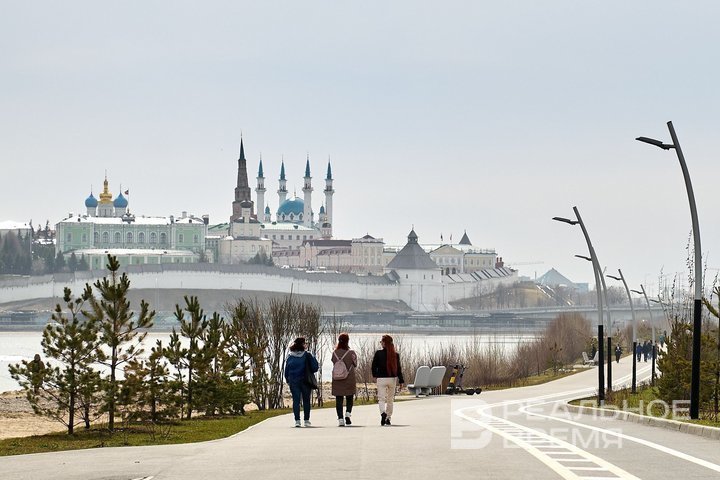Kazan hoteliers fear crisis in the industry due to resort tax
The industry notes that hotel projects take a long time to pay off, and the new tax will worsen the financial situation for many

The tourist flow to Kazan will not decrease with the introduction of the resort tax, but it may be redistributed towards the “grey” sector. “We looked at the statistics: the number of apartments for temporary accommodation has increased over the year, but the number of hotels has not. Will people want to invest in the hotel business?” Executive Director of the Association of Hotels of Kazan and the Republic of Tatarstan Alexandra Yushutina comments on the initiative in a conversation with Realnoe Vremya. They want to introduce a new tax on tourists from 1 January 2025, hoteliers will have to pay it — for each occupied room. Read more about what problems this is associated with and how much the burden on the hotel industry will increase in a report of Realnoe Vremya.
Kazan to impose a tax on tourists
A tourist tax will come into effect in Kazan from 1 January 2025. Its amount will be 1% of the cost of accommodation in hotels and inns. The minimum fee established by federal law will be 100 rubles per day.
The draft resolution On Tourist Tax will be considered at a session of the Kazan City Duma after passing an anti-corruption examination.
For tourists, the tax amount will be included in the cost of the room. At the same time, persons under 18, beneficiaries and other categories of citizens will be exempt from paying the resort tax.
According to preliminary estimates, already in the first year, the new tax will attract more than 150 million rubles to the Kazan budget. The money will be used to improve infrastructure, public spaces and promote the city's tourist brand.

3.2 million people visited Kazan in the first 8 months of 2024. This figure exceeds last year's results by 10.3%, said Director of the Tourism Development Committee Darya Sannikova at a meeting. Tourists left 22.1 billion rubles in the city, which is 29.8% more than the figures for the same period last year.
“Tourist flow may shift towards the ‘grey’ sector”
The introduction of a tourist tax in Kazan is premature, says Executive Director of the Kazan and Tatarstan Hotel Association Alexandra Yushutina. According to world practice, fees are introduced to limit excessive tourist flow to the city. The proceeds are used to restore damaged infrastructure, while there is no such need in the capital of Tatarstan.

The speaker believes that with the introduction of the tax, the tourist flow to Kazan will not decrease, but may be redistributed towards the “grey” sector: “We looked at the statistics: the number of apartments for temporary accommodation has increased over the year, but the number of hotels has not. Will people want to invest in the hotel business? Most likely, they will prefer serviced apartments or will buy apartments in tourist locations for daily rent. This sector does not pay taxes, but it burdens the infrastructure.”

Another problem, according to her, is the lack of a well-coordinated administration mechanism. Firstly, the current hotel system is not adapted to collecting the tax, so at first all collection will have to be done manually, which, in turn, will lead to errors. Secondly, there is still no clarity on the intended purpose of the collected funds.
“We need to make this mechanism transparent, including involving public organisations that will conduct surveys of tourists. It would be great if they organise open discussions with all participants in the tourism industry. This will affect not only individual tourists, but also tour operators. We want to make tourism accessible — this is even being discussed at the federal level. I would like to see measures introduced aimed at increasing this accessibility,” Yushutina noted.
“Hotel projects already pay for themselves in 10-15 years”
Another industry expert, Vice President of the Federation of Restaurateurs and Hoteliers Vadim Prasov agrees with his colleague. In his opinion, the tourist tax can become a demotivating factor.

However, a 1% tax will be quite affordable for Kazan hotels, the source said. The capital of Tatarstan, as a city popular with tourists, should not have problems with such a large amount of fees.
“Kazan looks modern from the point of view of urban infrastructure development. If it were not for this, the city's popularity would be lower. In addition, BRICS has just taken place. It is clear that even more money was invested in Kazan for it. Hotel fees are unlikely to have a significant impact on improving infrastructure. It seems to me that these are incomparable figures,” the expert shared his opinion on the effectiveness of the initiative.
Nevertheless, according to him, it is necessary to monitor how the financial condition of the main players in the hotel industry is changing. It is necessary to introduce new measures based on intermediate results, the expert believes.